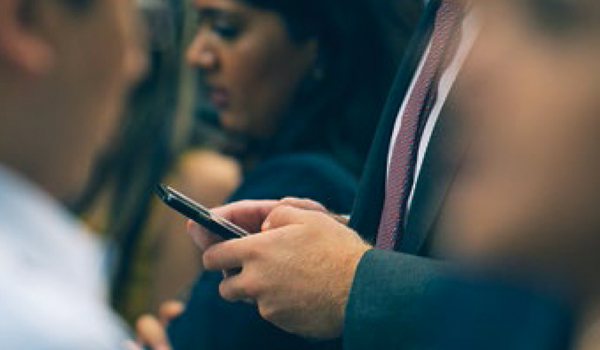Public getting smart on personal safety
People have high expectations of public safety agencies, and where these expectations are not being met they are increasingly using smartphones and the internet for their own safety.
People have high expectations of public safety agencies, and where these expectations are not being met they are increasingly using smartphones and the internet for their own safety.
Smartphone services that deliver public warnings and mass broadcast notifications allowing users to instantly receive emergency information, and assault or alarm apps that feature an automatic emergency response to the police, are just some of functions expected of todays public safety agencies.
And research shows the public is no longer prepared to wait for the authorities to offer security solutions such as these, with three in four users already having emergency and security apps on their smartphones.
Todays citizens have high expectations of authorities and public safety agencies, and where these expectations are not being met they are increasingly using the internet and smartphones for their own personal safety, says a new Ericsson ConsumerLab report.
According to the report, Public safety goes personal, the smartphone is emerging as a key personal safety tool as it offers constant availability through calls or internet access, and through the use of security functions or apps.
It says in this way, citizens can make better informed decisions and engage with their social networks to contribute to the safety of their communities.
The report found the public has high expectations when it comes to the implementation of different types of technology to complement the physical presence of emergency personnel.
For example, half the respondents said that in the event of a severe car accident they would use emergency phones and defibrillators if they were available.
A project such as this is already being piloted in Stockholm. The SMS Livraddare (SMS-lifesavers) initiative sends text messages to cardiopulmonary resuscitation (CPR)-trained civilians in the vicinity to assist in starting CPR before an ambulance arrives.
Public safety is a hot topic of debate, both among citizens and in the media, with the conversation revolving around expectations of what authorities should do to keep people safe, says the report.
While it is clear is that citizens have high expectations on city authorities and public safety agencies, like the fire and rescue service, ambulance, emergency medical services and police. Citizens are increasingly using the internet for their own personal safety and are now expecting authorities to be doing the same.
By accessing and sharing information on the internet and by using digital technology and apps on a broader scale, citizens are closing the gap between personal and public safety.
This, in turn, increases the pressure on city authorities to engage in public safety through these same technologies.
The internet enables citizens to make better and more informed decisions in general, and this is equally true for public safety. By using the internet to become informed about personal safety, citizens may in fact be collectively leading the way towards safer cities.
Almost half of the respondents would be interested in smart video monitoring that could recognise suspicious behaviour, or identify wanted criminals or missing persons through facial recognition technology. A similar number are also positive about the use of crime prediction systems and drones that can maintain surveillance over an area or aid in emergencies.
One reason for citizens to be open to new technology is because they see the personal benefit of a whole city becoming more secure, says the report.
The research analysed smartphone users views on public safety across five cities London, Dubai, Istanbul, New York and Stockholm in an online survey carried out in May.
In New York and Istanbul, for example three in four smartphone users already have emergency apps or functions on their devices, with a high interest in using more security apps.
The most common was the storing of emergency contacts and the use of GPS (global positioning system) tracking to let family or friends know wher



